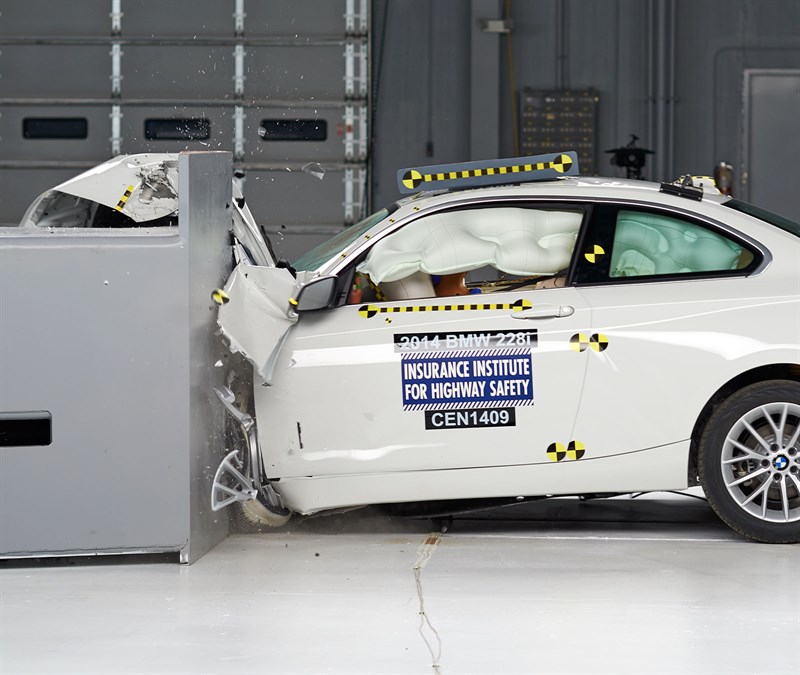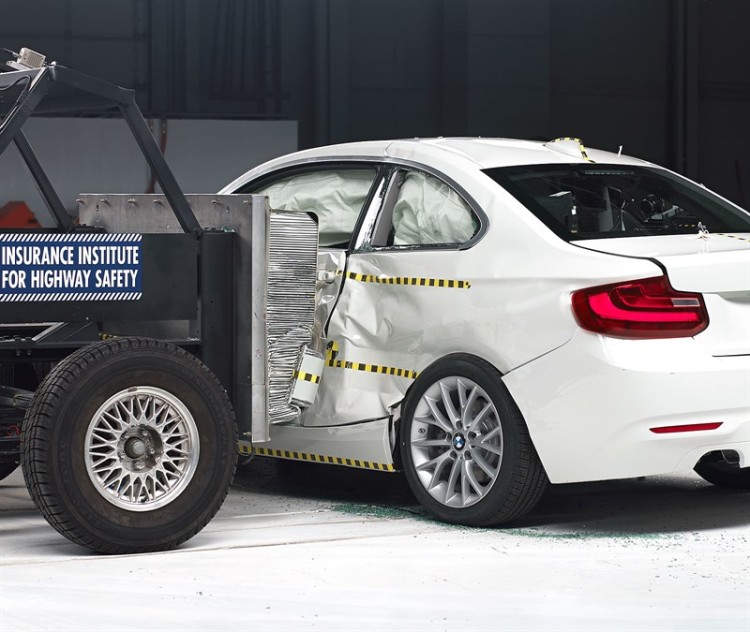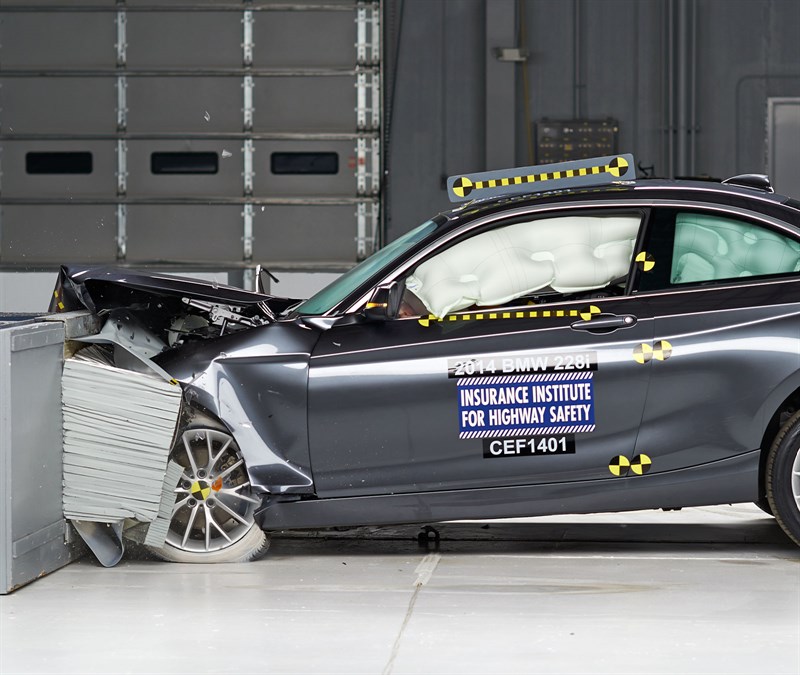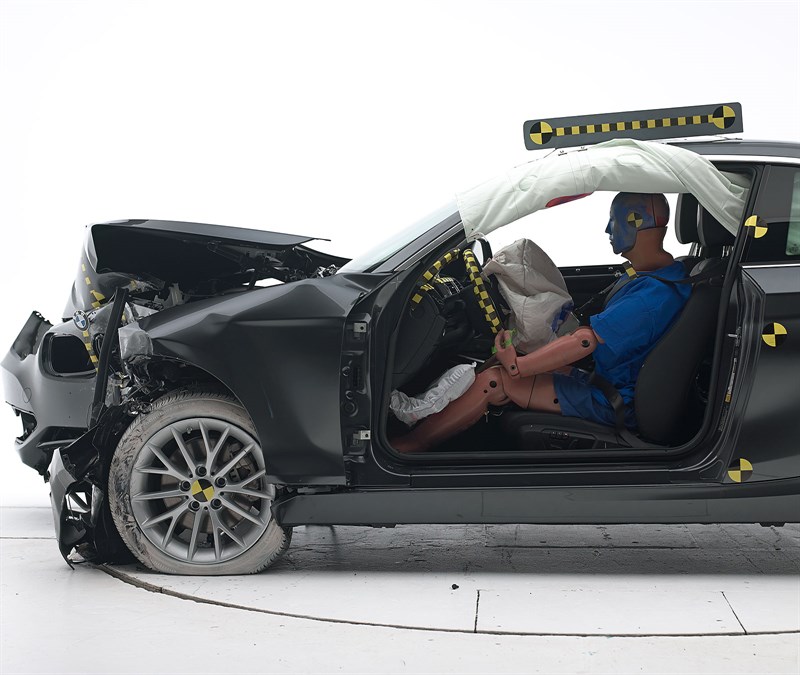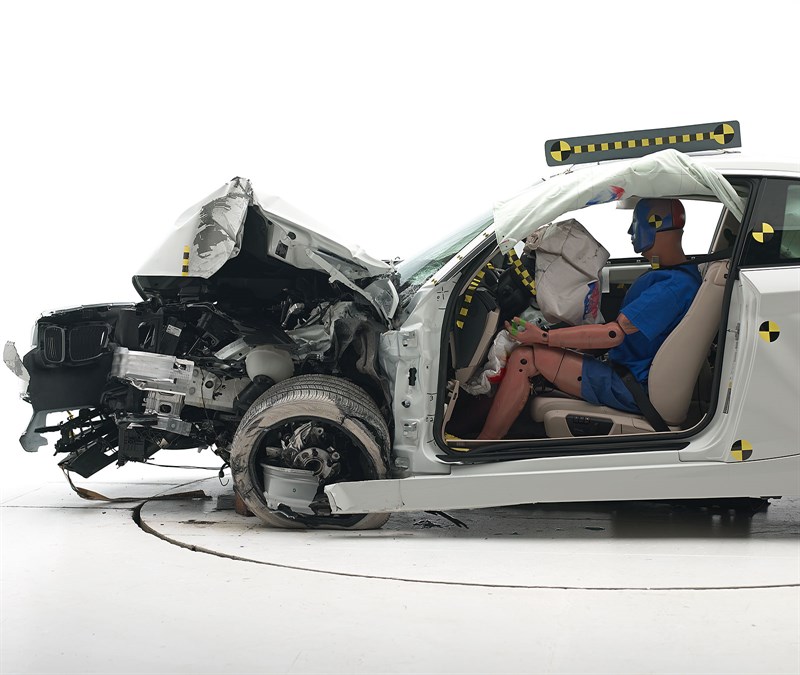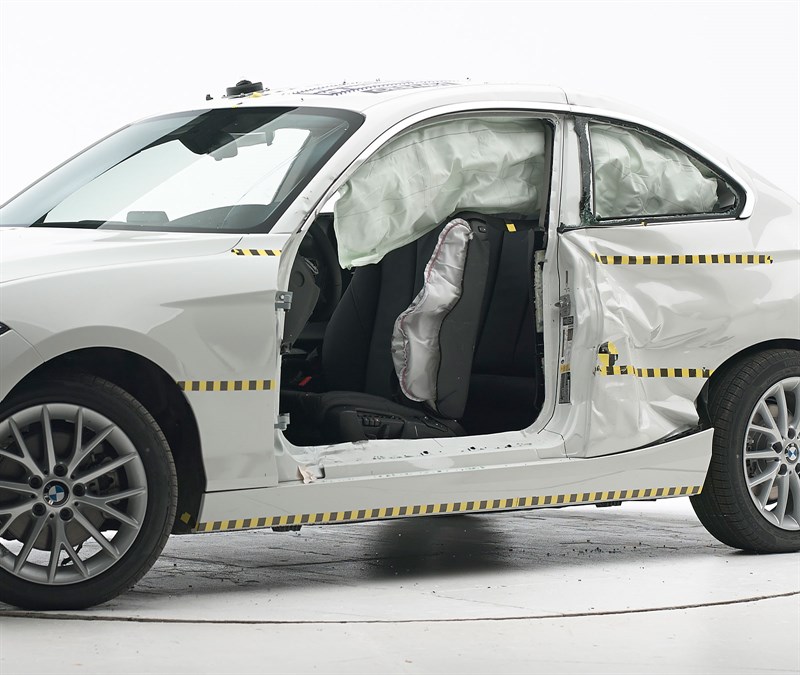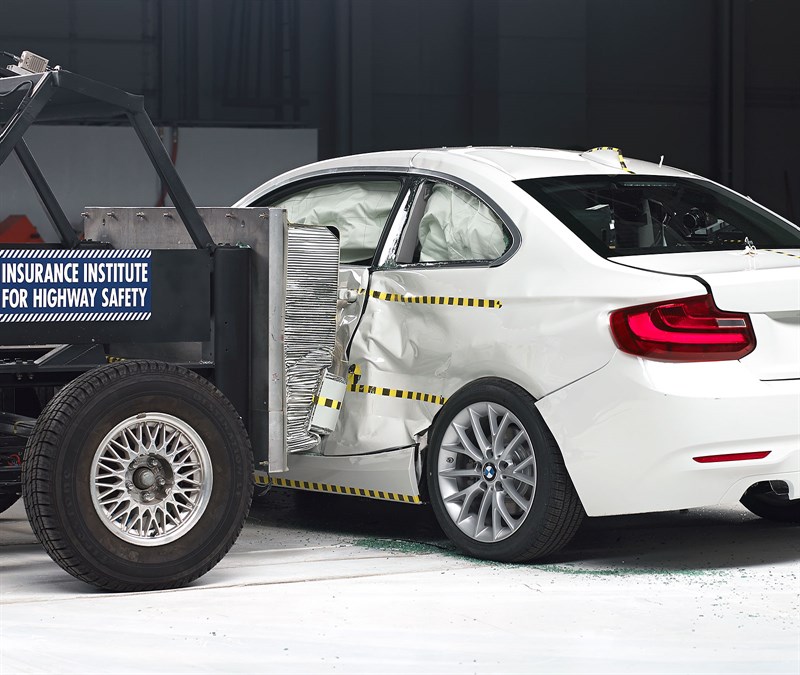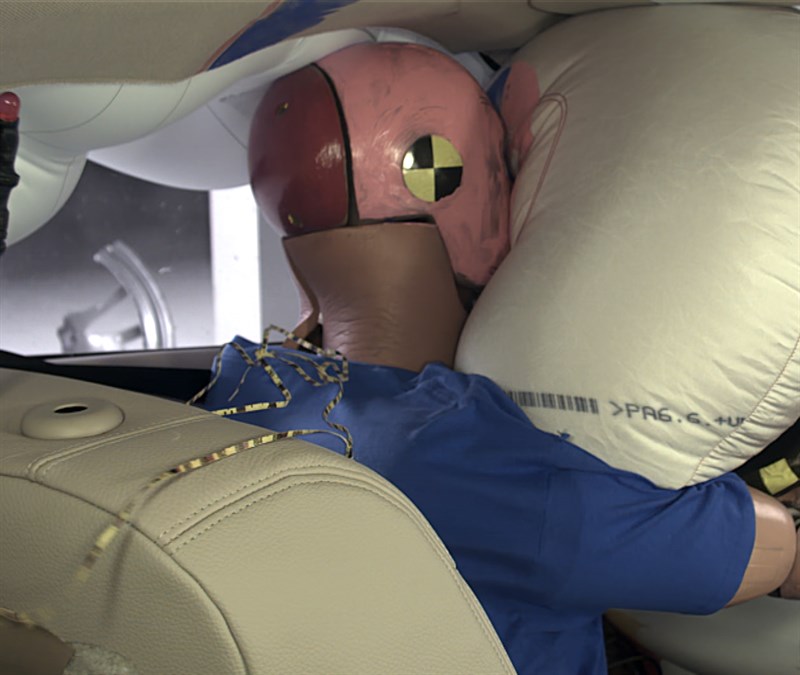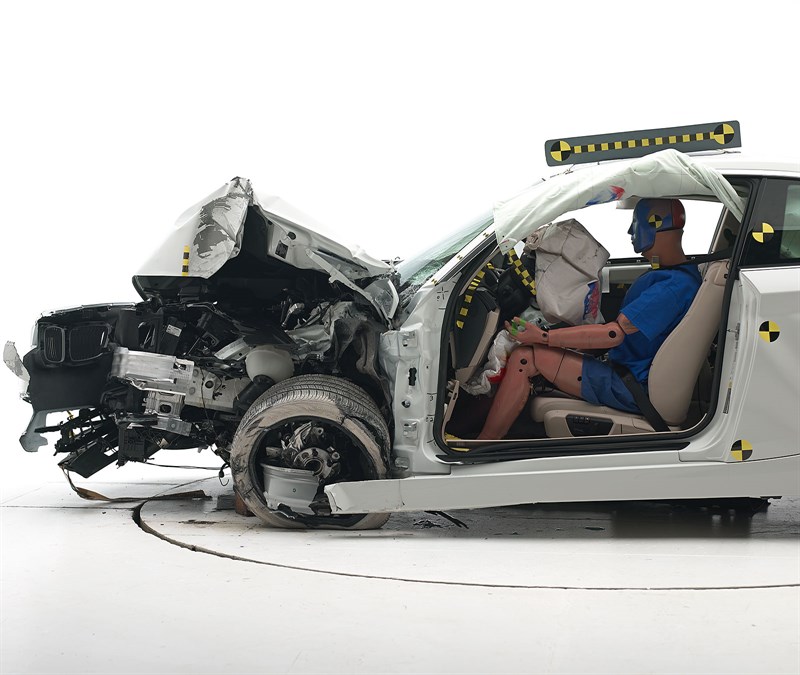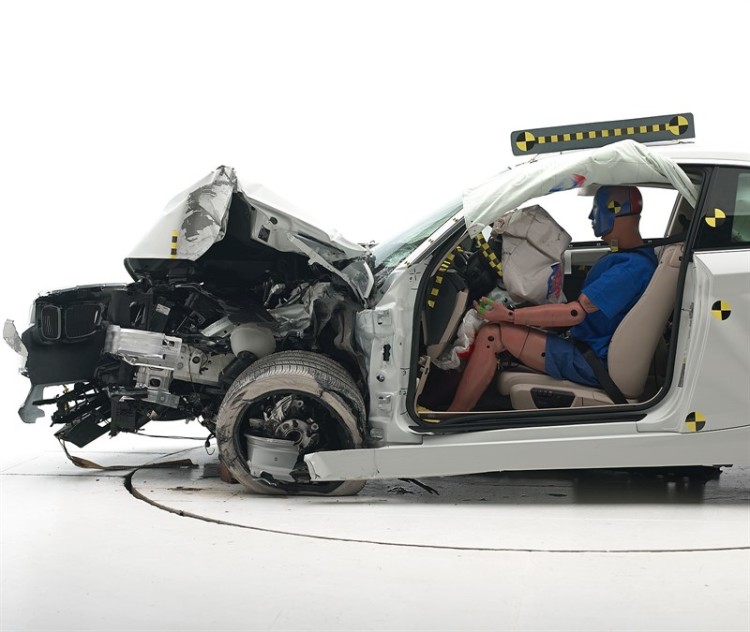The BMW 2 Series coupe has received a “Top Safety Pick” rating from the U.S. Insurance Institute for Highway Safety. The 2 Series Coupe scored “Good” in all categories. Full report can be seen here.
Small Overlap Front
The BMW 1 series was redesigned for the 2014 model year and renamed the 2 series.
Structure
The driver space was maintained reasonably well, with maximum intrusion of the lower interior of 29 cm at the footrest and 28 cm at the left toepan. Upper interior intrusion measured 7-8 cm at the upper hinge pillar and instrument panel.
Injury measures
Measures taken from the dummy indicate a low risk of any significant injuries in a crash of this severity.
Restraints and dummy kinematics
The dummy’s movement was well controlled. The dummy’s head loaded the frontal airbag, which stayed in front of the dummy until rebound. The side curtain airbag deployed and has sufficient forward coverage to protect the head from contact with side structure and outside objects.
Moderate Overlap Front
Injury measures
Measures taken from the dummy indicate a low risk of any significant injuries in a crash of this severity.
Restraints and dummy kinematics
Dummy movement was well controlled. The driver side curtain airbag deployed during the crash. After the dummy moved forward into the frontal airbag, its head contacted the side curtain airbag.
Side
Injury measures
Driver — Measures taken from the dummy indicate a low risk of any significant injuries in a crash of this severity.
Passenger — Measures taken from the dummy indicate a low risk of any significant injuries in a crash of this severity.
Head protection
Driver — The dummy’s head was protected from being hit by any hard structures, including the intruding barrier, by a side curtain airbag that deployed from the roof.
Passenger — The dummy’s head was protected from being hit by any hard structures, including the intruding barrier, by a side curtain airbag that deployed from the roof.
Roof Strength
In the test, the strength of the roof is determined by pushing a metal plate against one side of it at a slow but constant speed. The force applied relative to the vehicle’s weight is known as the strength-to-weight ratio. This graph shows how the ratio varied as the test of this vehicle progressed. The peak strength-to-weight ratio recorded at any time before the roof is crushed 5 inches is the key measurement of roof strength.
A good rating requires a strength-to-weight ratio of at least 4. In other words, the roof must withstand a force of at least 4 times the vehicle’s weight before the plate crushes the roof by 5 inches. For an acceptable rating, the minimum required strength-to-weight ratio is 3.25. For a marginal rating, it is 2.5. Anything lower than that is poor.
Tested vehicle specifications
| Tested vehicle | 2014 BMW 228i 2-door |
| Weight | 3,326 lbs. |
| Side airbags | front and rear head curtain airbags and front seat-mounted torso airbags |
| Wheelbase | 106 in. |
| Length | 175 in. |
| Width | 70 in. |
| Engine | 2.0 L turbocharged 4-cylinder |
| EPA ratings | 23 mpg city / 36 mpg highway |
das


